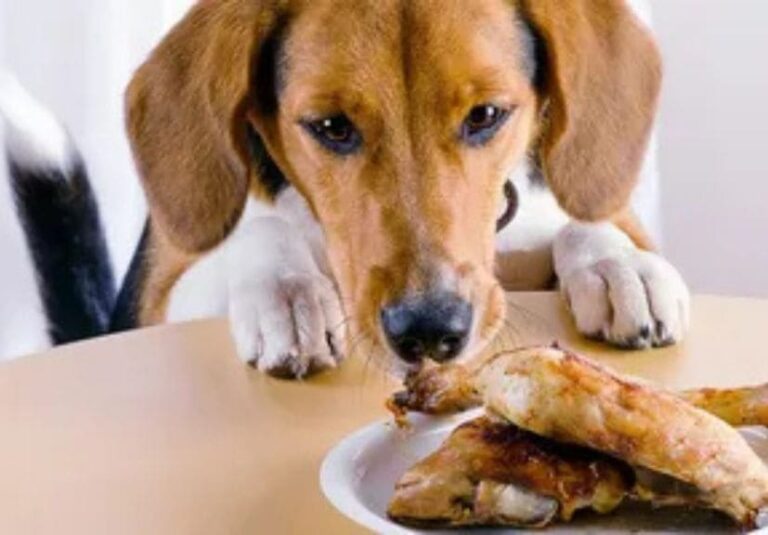We’ll discuss several key elements, such as the kind and amount of food you give your dog, stressing the value of nutrient-rich meals, and sensible portion sizes. We’ll also discuss any medical conditions, like parasites or thyroid abnormalities, causing your dog to eat more than usual. In addition to genetic proneness specific to particular breeds, behavioral and environmental variables, such as boredom or fear, can also affect a dog’s feeding habits.
We will also discuss how drugs might impact your dog’s appetite and when it is imperative to consult a veterinarian for persistent hunger problems. If you comprehend these factors, you’ll be better positioned to ensure your dog is happy, healthy, and fed.
Constant Dog Appetite Factors
Understanding your dog’s constant appetite factors is crucial for its well-being. This blog explores critical aspects—from food quality and health issues to behavioral influences and medication effects—offering insights to help manage and address your dog’s persistent hunger effectively.
Assessing Food Quality and Quantity
The first thing to be checked among the dog constant appetite factors is food quality and quantity! Assessing what and how much your dog is fed is the first step in solving their insatiable appetite. When it comes to dog food, quality is essential. Choose nutritious, high-quality foods with necessary vitamins, minerals, and proteins. Steer clear of meals that include fillers like corn and soy, as these might make your dog feel hungry even after eating.
Equal importance must be given to portion control. Dog food labels include feeding recommendations depending on size, age, and activity level. Even when the meal is of high quality, overindulging in food can result in weight gain and persistent hunger. Aim for the suggested portions, modifying them to suit your dog’s energy needs.
Potential Health Issues
Dogs may get hungrier for a variety of reasons. Internal parasites, such as roundworms and hookworms, may deplete your dog’s body nutrients and cause them to feel peckish even after eating. If you see any signs, such as diarrhea, weight loss, or an enlarged abdomen, you should immediately contact your veterinarian to rule out parasites.
Dogs with thyroid issues, especially hypothyroidism, may have elevated hunger and weight gain due to metabolic disturbances. Even if your dog has regular feeding habits, keep an eye on any changes in weight and contact your veterinarian for an accurate diagnosis and course of action.
Behavioral and Environmental Factors
Occasionally, behavioral or environmental variables rather than physical ones cause a dog’s excessive desire. Anxiety or boredom might manifest as a desire for more frequent meals. Ensure adequate mental and physical stimulation to keep your dog happy and involved.
Another way to control your dog’s hunger signals is to establish a regular feeding schedule. They may exhibit excessive begging or scavenging behavior due to irregular feeding schedules that throw off their internal clock. Refrain from caving into requests for additional snacks during mealtimes that are not predetermined.
Genetic and Breed Considerations
Some dog breeds are naturally inclined to eat a lot. Because of their propensity for overindulging in food, Labrador Retrievers and other similar breeds are prone to obesity if they do not exercise caution. Recognize the breed preferences of your dog and modify their activity and food plans to help them stay at a healthy weight.
Medication Side Effects
It’s crucial to consider whether your dog’s increased hunger is a possible adverse effect of any drugs they take. Certain medications, such as steroids or certain antibiotics, might change a dog’s metabolism or increase its hunger. Consult your veterinarian if your dog’s appetite significantly changes after taking a new medicine. They could advise changing to a different medicine or modifying the dosage if feasible.
When to Consult a Veterinarian
When it comes to the dog constant appetite factors or what we should check if our dog is always hungry, there are various points, from medical conditions to genetic considerations. Dogs who exhibit persistent hunger may have underlying medical conditions that need to be treated by a veterinarian. If your dog behaves frenzied even after you make dietary and routine changes, consult a specialist.
Your veterinarian may perform diagnostic testing to rule out medical diseases like diabetes or Cushing’s disease, which can cause increased hunger in dogs. Medications and dietary adjustments are among the treatment options that differ depending on the diagnosis.
Conclusion
Considering various factors, including behavior, medication side effects, nutrition and health, and the potential presence of parasites, can help you understand why your dog is constantly hungry. Providing your dog with high-quality, balanced food, frequent exercise, and mental stimulation can reduce your dog’s excessive appetite and enhance its general well-being.
Be bold and see your veterinarian if you have questions about your dog’s feeding habits or believe there may be a health problem. Furthermore, by adhering to these recommendations and keeping a close eye on your dog’s nutrition, behavior, medication schedule, and possible parasite infections, you can guarantee that your dog’s appetite is adequately controlled and that it remains happy and content.
What to do with a dog that is always hungry?
If your dog appears to be constantly hungry, begin by assessing its food. Make sure it’s eating wholesome, nutrient-dense food in the right amounts. Take breed characteristics and activity levels into account while feeding.
How do you know if your dog is genuinely hungry?
When a dog is starving, it will pace, whine, and search for food. It could become interested in its dish or pay closer attention to you as it eats.
How many times a day should a dog eat?
Two meals a day are generally beneficial for older dogs. However, puppies can require three or four smaller meals to meet their energy and development requirements. Modify the frequency of feedings based on size, activity level, and age.
Is a hungry dog a healthy dog?
Not invariably. Even though dogs are typically voracious eaters, persistent hunger may be a sign of behavioral difficulties, health concerns, or poor diet quality. Identifying and treating the underlying problem is critical to protect your dog’s well-being.
How will I know whether my dog is getting enough food?
Regularly check your dog’s weight and bodily health. If your dog’s weight is within a healthy range and can feel its ribs readily, it will likely eat correctly. For advice on managing weight or nutrition, speak with your veterinarian.




